Flower Arranging for Fun and Health
last updated 2022-08-02 20:23:27 by Simon Vandevelde
Almost two years ago, during the first covid dip in Belgium, I tried my hand at floral arrangements.
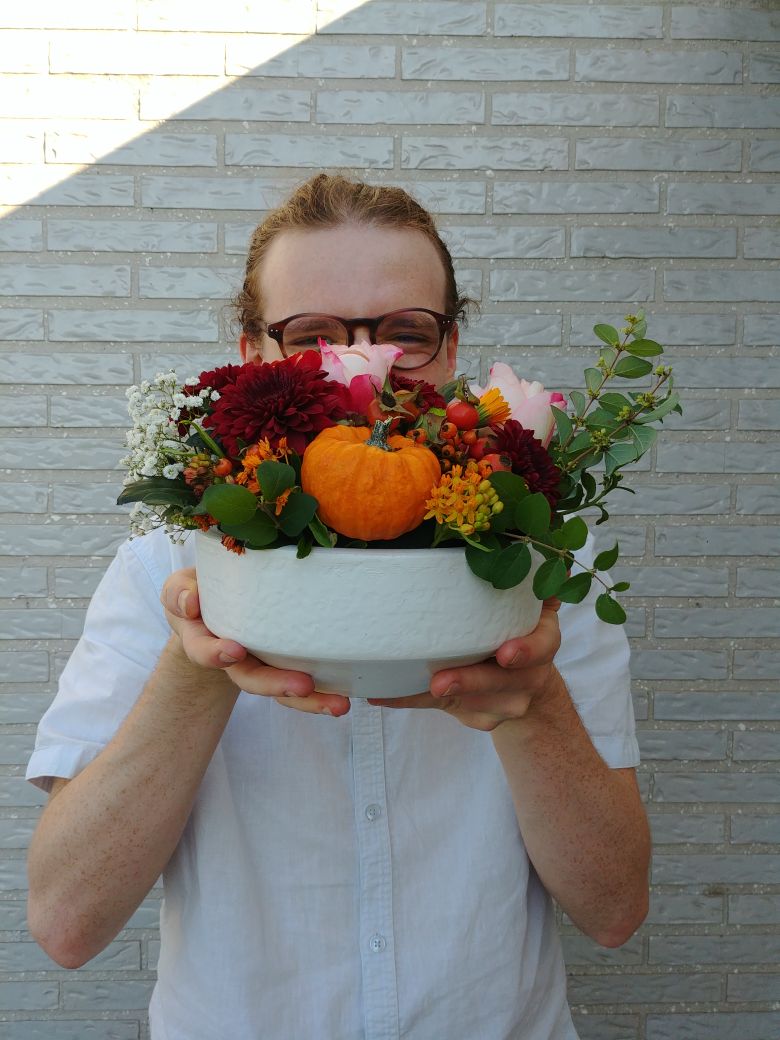 And I've been hooked ever since!
What started as an excuse to get my cousins round and spend time with our grandmother quickly grew into a bi-monthly tradition.
The story of how we got started goes a bit as follows: my grandmother used to regularly partake in floral arrangement workshops, hosted by the local flower shop.
With the arrival of covid lockdowns, she remarked that she was sad that the workshops (understandably so) had been cancelled for quite a while.
"Why not host our own flower arranging workshops, with all the grandchildren?", I thought, already asking them if they would be interested.
Might be fun, right?
Turns out, it is fun!
It's a nice combination of working with your hands, doing something creative and hanging out with family.
And as a bonus, if all goes well you get to take some nice flowers home!
And I've been hooked ever since!
What started as an excuse to get my cousins round and spend time with our grandmother quickly grew into a bi-monthly tradition.
The story of how we got started goes a bit as follows: my grandmother used to regularly partake in floral arrangement workshops, hosted by the local flower shop.
With the arrival of covid lockdowns, she remarked that she was sad that the workshops (understandably so) had been cancelled for quite a while.
"Why not host our own flower arranging workshops, with all the grandchildren?", I thought, already asking them if they would be interested.
Might be fun, right?
Turns out, it is fun!
It's a nice combination of working with your hands, doing something creative and hanging out with family.
And as a bonus, if all goes well you get to take some nice flowers home!
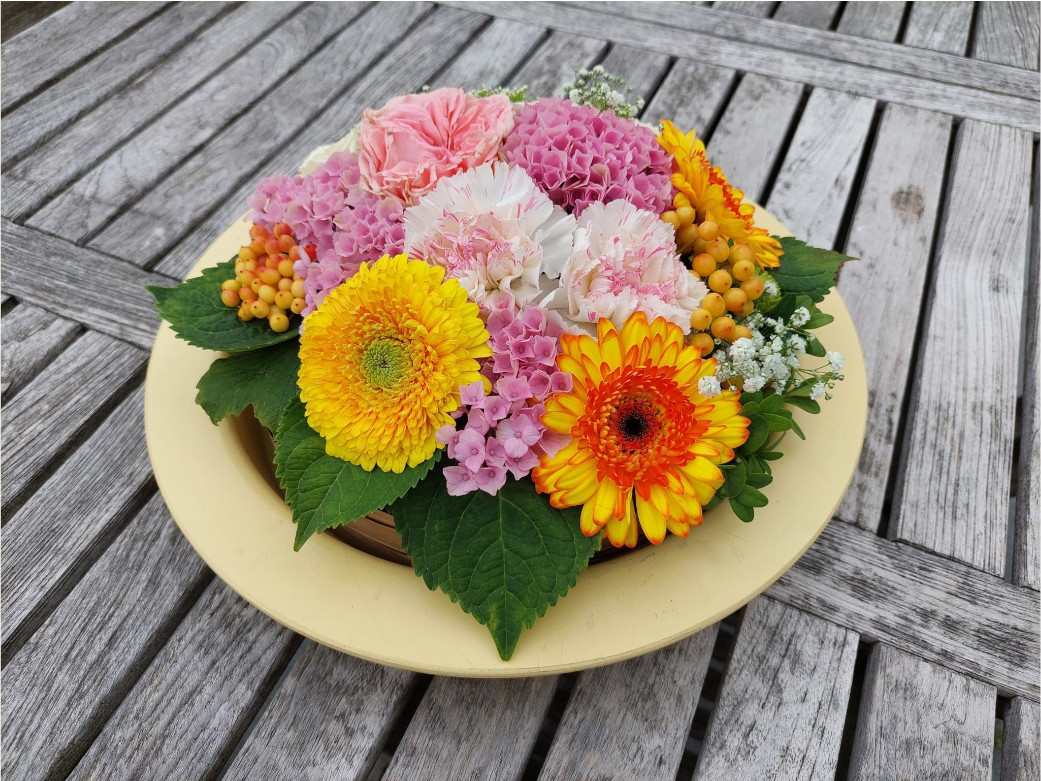 This is where I got to thinking: are there documented benefits of making flower arrangements?
While it sure is relaxing for me, it might not have the same effect for everyone.
This is where I got to thinking: are there documented benefits of making flower arrangements?
While it sure is relaxing for me, it might not have the same effect for everyone.
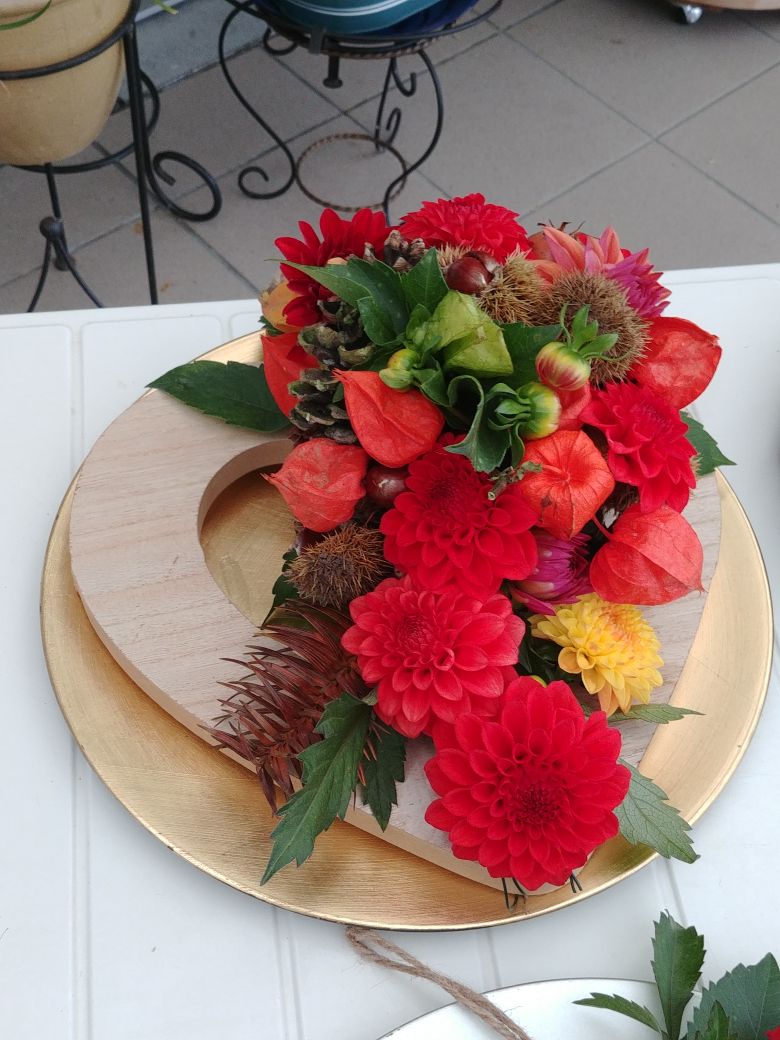
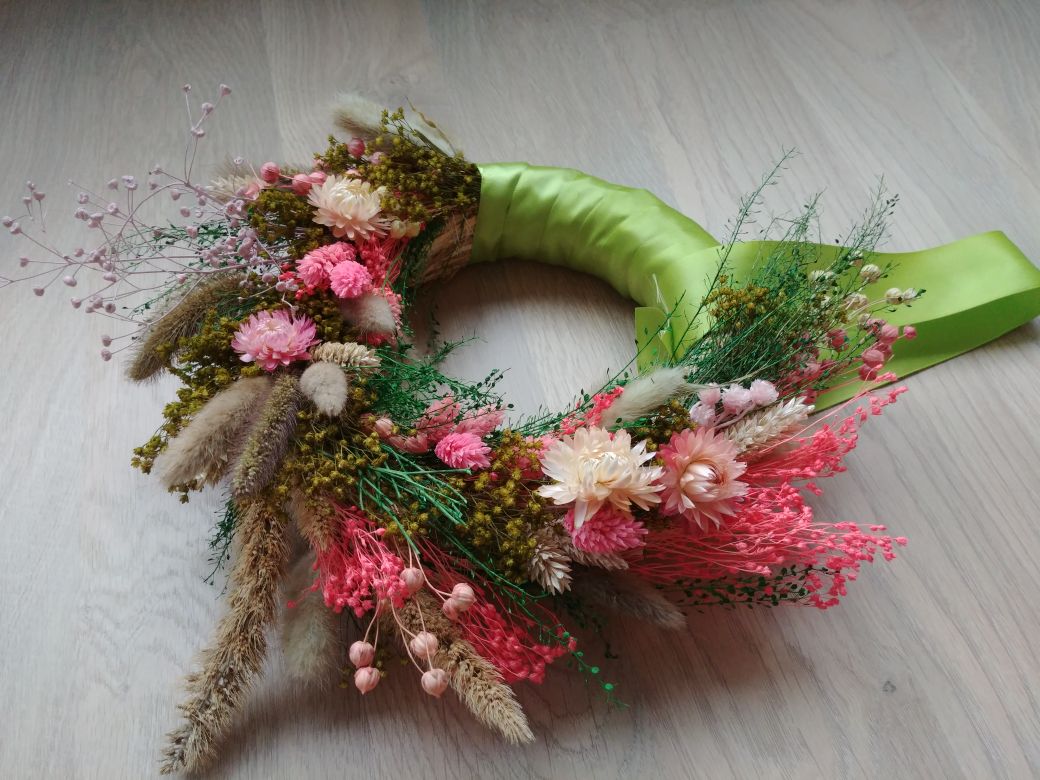
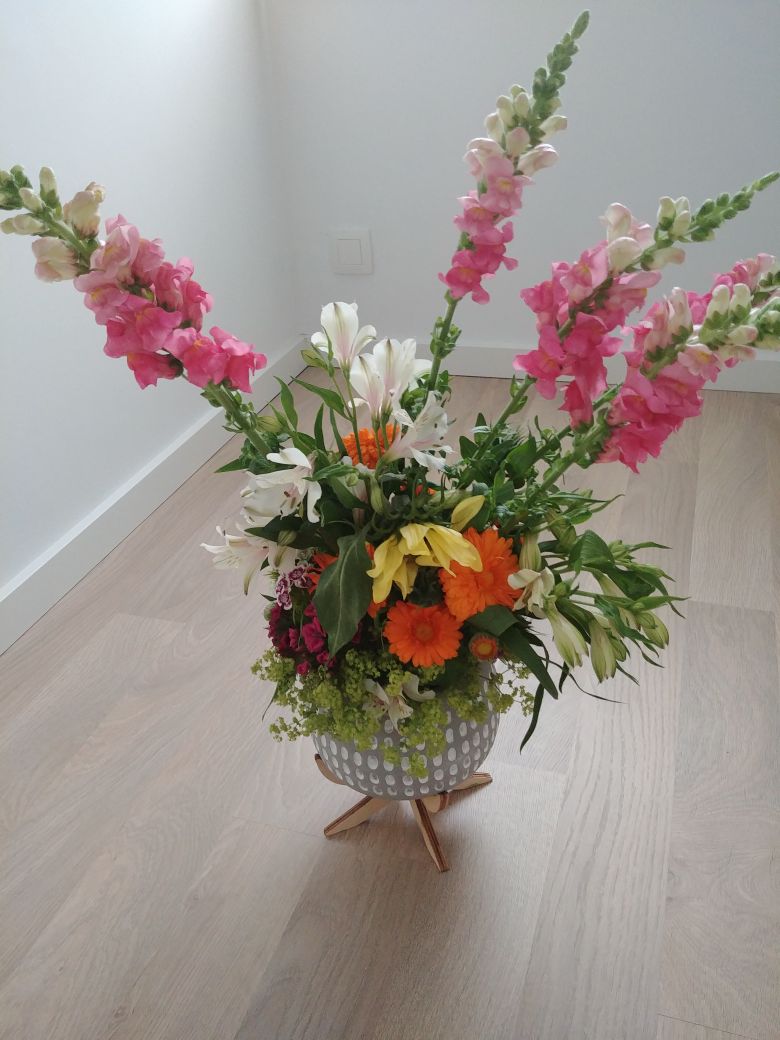
 And I've been hooked ever since!
What started as an excuse to get my cousins round and spend time with our grandmother quickly grew into a bi-monthly tradition.
The story of how we got started goes a bit as follows: my grandmother used to regularly partake in floral arrangement workshops, hosted by the local flower shop.
With the arrival of covid lockdowns, she remarked that she was sad that the workshops (understandably so) had been cancelled for quite a while.
"Why not host our own flower arranging workshops, with all the grandchildren?", I thought, already asking them if they would be interested.
Might be fun, right?
Turns out, it is fun!
It's a nice combination of working with your hands, doing something creative and hanging out with family.
And as a bonus, if all goes well you get to take some nice flowers home!
And I've been hooked ever since!
What started as an excuse to get my cousins round and spend time with our grandmother quickly grew into a bi-monthly tradition.
The story of how we got started goes a bit as follows: my grandmother used to regularly partake in floral arrangement workshops, hosted by the local flower shop.
With the arrival of covid lockdowns, she remarked that she was sad that the workshops (understandably so) had been cancelled for quite a while.
"Why not host our own flower arranging workshops, with all the grandchildren?", I thought, already asking them if they would be interested.
Might be fun, right?
Turns out, it is fun!
It's a nice combination of working with your hands, doing something creative and hanging out with family.
And as a bonus, if all goes well you get to take some nice flowers home!
 This is where I got to thinking: are there documented benefits of making flower arrangements?
While it sure is relaxing for me, it might not have the same effect for everyone.
This is where I got to thinking: are there documented benefits of making flower arrangements?
While it sure is relaxing for me, it might not have the same effect for everyone.
Happiness Blooming
It's been known for a long time that nature in general has a significant effect on our mental well-being. For example, research has recently shown that inhabitants of city neighbourhoods with the presence of older trees (with big tops) buy significantly less medicine [1]. But what about flowers specifically? Well, here too research seems to agree that they have a universally positive influence on our mental health. In a study in Japan, office workers were asked to sit next to a flower for four minutes, in order to study its influence [2]. Turns out, just having this flower near them made them more relaxed. These findings were also confirmed by other researchers, who posit that it could be used as an effective mental health booster during covid lockdowns [3]. Cool! Besides relaxing, other studies have shown that flowers have long-lasting positive effects on our moods [4]. They furthermore discovered that receiving flowers is also a universally happiness-inducing experience, even more so than receiving cold hard cash! At the end of the study, the researchers even suggest that flowers have specifically evolved to make us happy so that we would cultivate them, thus ensuring their survival. Getting psychologically tricked by a plant never felt so wholesome!
Flower arrangements
So, flowers are good for mental health. But these past studies all discussed single flowers -- what about arrangements? Well, there's not much research that distinguishes between flowers in general and arrangements specifically, as I assume it is quite niche. However, I did find one paper on the topic, which reported on arrangements that were placed at specific tables in a private psychiatric hospital [5]. By introducing these flowers, the number of patients in the dining hall increased by 84%. Tables with arrangements were "highly preferred" by the patients, and were sat at for longer than the others. In this way, the arrangements led to increased social interaction, which of course in turn brings a bunch of benefits along with it.
Creating arrangements
Now for the real question; does creating flower arrangements have any benefits? The answer is pretty simple: yes! In fact, it's a type of horticultural therapy. I did not know such a thing existed before reading this. Not that I was surprised really, plenty of people use their garden as a way of quite literally grounding themselves, in order to de-stress. In short, this type of therapy has the following benefits [6]:- Pleasure during the activity
- Visible, touchable, aromatic and audible stimulation
- More positivity in life
- Restoration of energy and a reduction in stress
- Decrease in axiety, general sense of calm
- Increased patience
- ...

Conclusion
I hope that this post has been able to convince you to delve deeper in the world of flower arrangements. I cannot stress enough how fun it is! In any case, I was at least able to show off some of my recent arrangements. :-) So, grab some loved ones, buy a few Oasis bricks and some flowers (or gather them yourself), and get to it! If you're unsure how to start: ask your grandmother (alternatively, a flower shop)!References:
- Chi, Dengkai, et al. "Residential exposure to urban trees and medication sales for mood disorders and cardiovascular disease in Brussels, Belgium: an ecological study." Environmental health perspectives 130.5 (2022): 057003.
- Ikei, H., Komatsu, M., Song, C. et al. The physiological and psychological relaxing effects of viewing rose flowers in office workers. J Physiol Anthropol 33, 6 (2014). https://doi.org/10.1186/1880-6805-33-6
- Xie J, Liu B, Elsadek M. How Can Flowers and Their Colors Promote Individuals’ Physiological and Psychological States during the COVID-19 Lockdown? International Journal of Environmental Research and Public Health. 2021; 18(19):10258. https://doi.org/10.3390/ijerph181910258
- Haviland-Jones, Jeannette, et al. "An environmental approach to positive emotion: Flowers." Evolutionary Psychology 3.1 (2005): 147470490500300109.
- Farmer, C. S. (1977). Patient/staff behavioral responses to flower arrangements within a private psychiatric hospital dining room (Doctoral dissertation, Kansas State University).
- Villamayor, M. (2019). Mathaesthetics in Flower Arrangement of the Third Agers. Liceo Journal Of Higher Education Research, 15(1). doi:10.7828/ljher.v15i1.1302